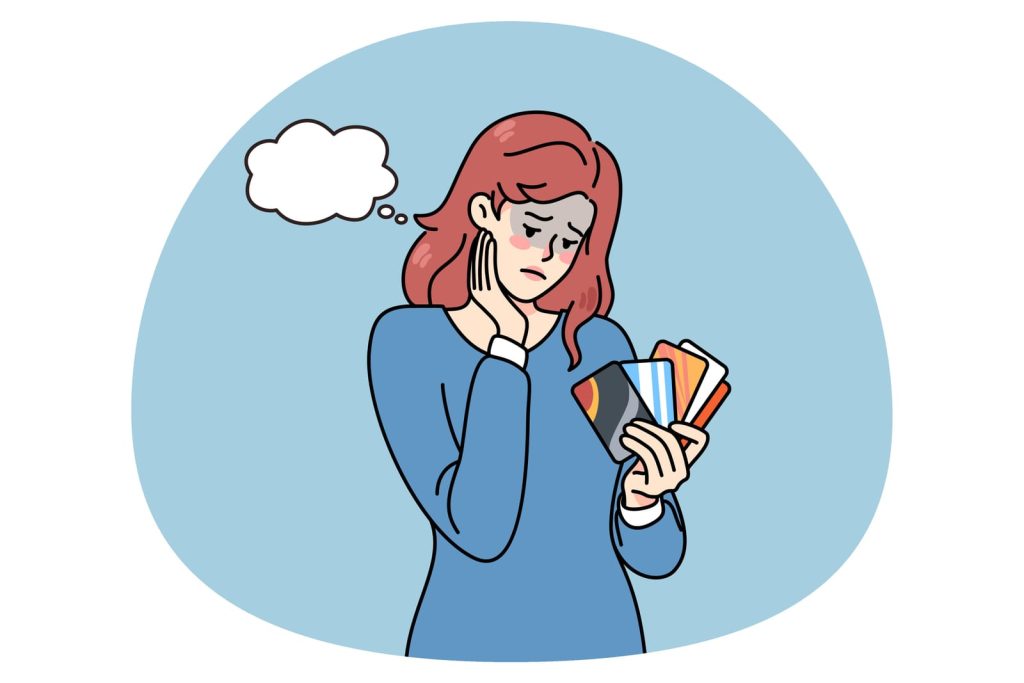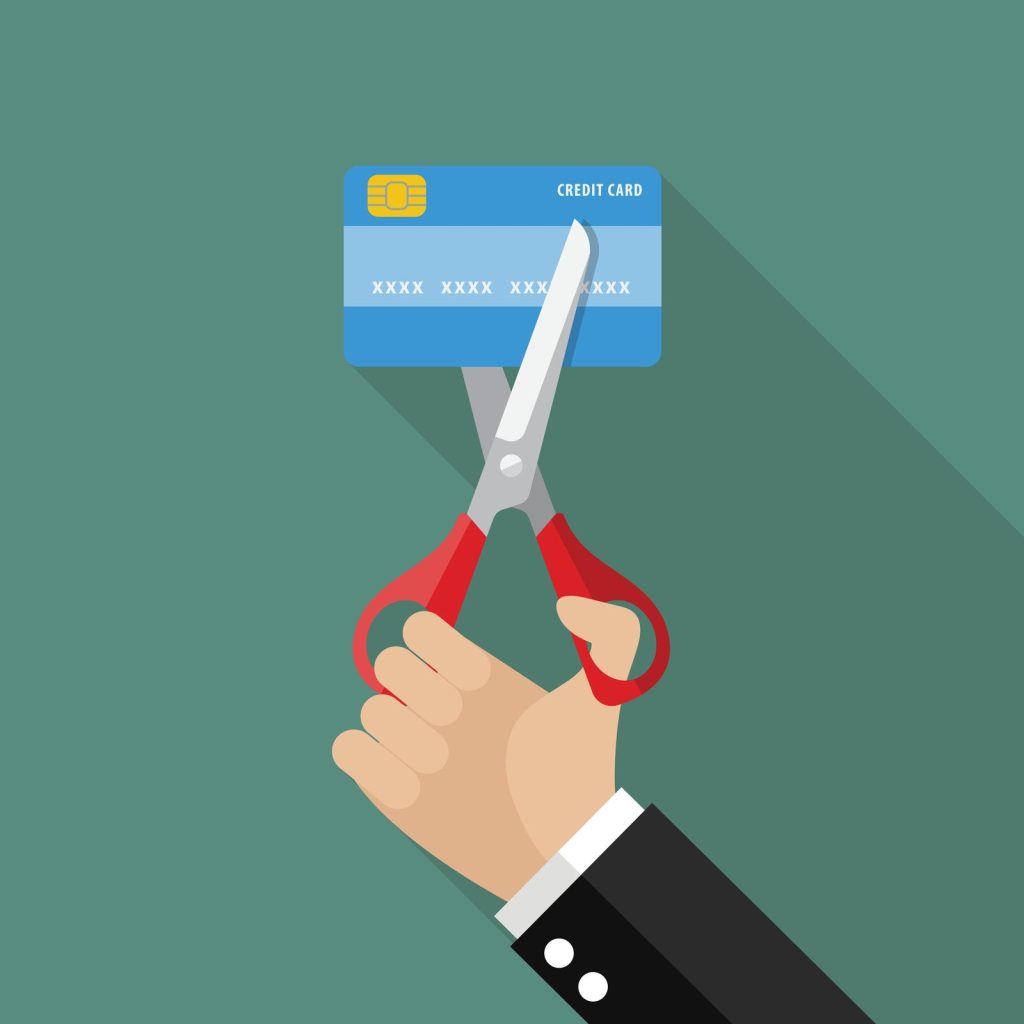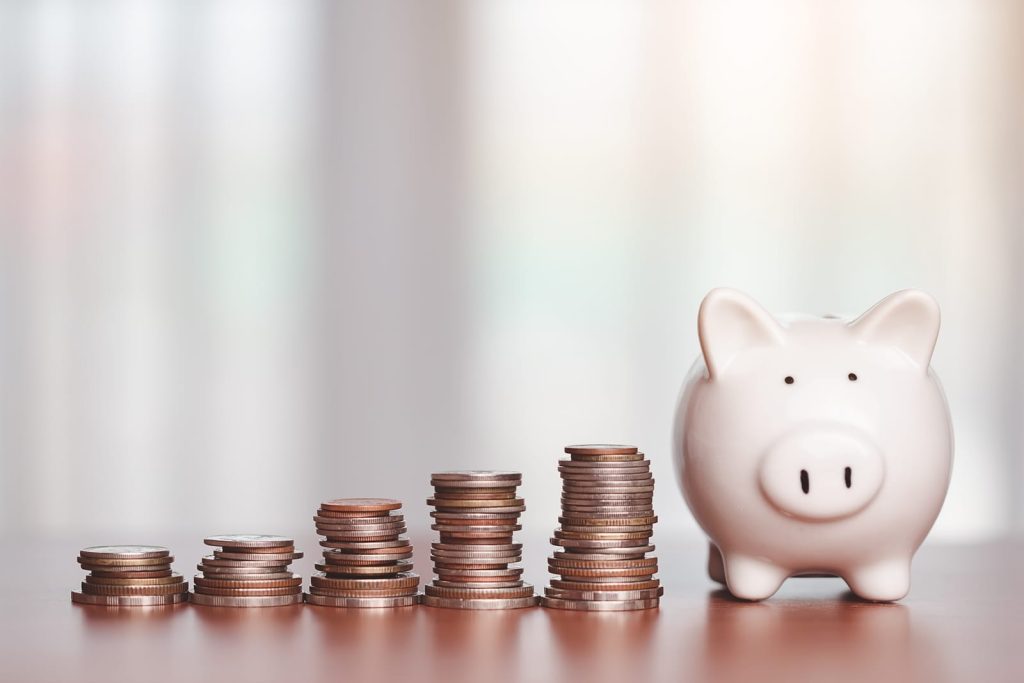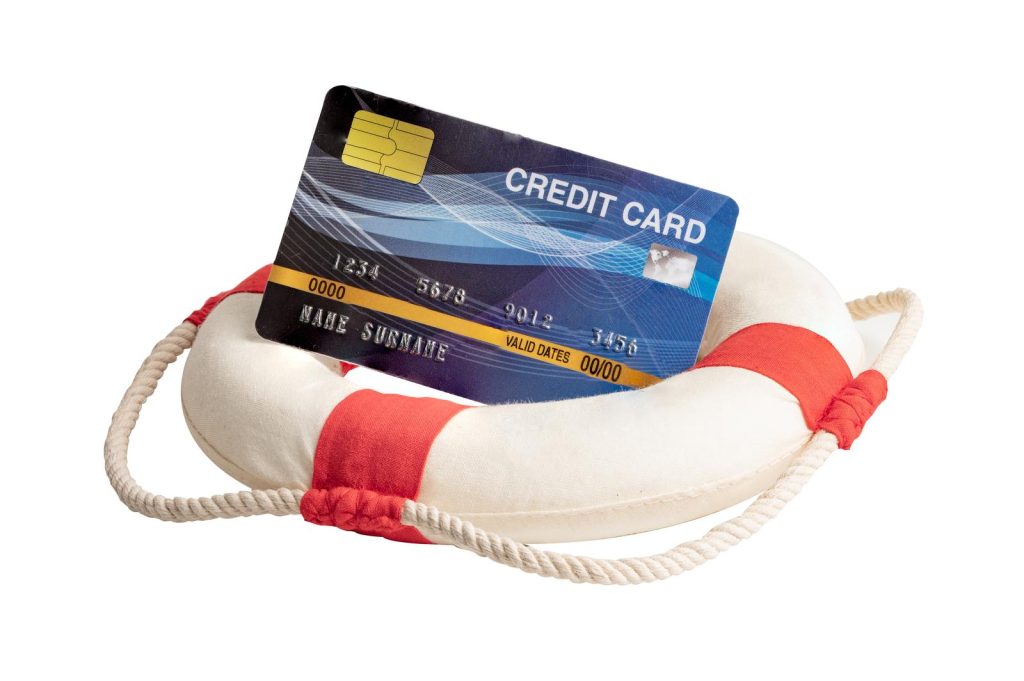Nobody deserves to deal with credit card debt.
Paying high interest rates, losing credit score, feeling that you can’t cope with your financial obligations, the list of adversities goes on.
But every once in a while, whether because of unexpected expenses or lack of planning (hey, we all enjoy pleasing ourselves sometimes, right?), we all may end up with an amount of debt that we can’t pay off.
In fact, Americans’ total credit card balance in the third quarter of 2023 totaled US$1.079 trillion, according to the Federal Reserve Bank of New York.
In this article, we’ll cover the six best strategies to pay off your credit card debt fast, even if you’re struggling financially. Moreover, we’ll show you simple tips to prevent you from getting it in the first place.
If you have over $10,000 in Credit Card Debt be sure to also check out our article on debt services that can help pay off credit card debt faster.
Why is it critical to pay off credit card debt?
Credit card debt often comes with exorbitant interest rates that can quickly snowball into a huge financial burden.
Paying down your credit cards on time not only means avoiding this trouble but also having more money for the things that matter rather than paying in interest. That includes exploring investment opportunities, contributing to retirement accounts, investing in personal projects, or simply buying the things you want.
In addition, a large amount of debt can decrease your credit score, and you may pay more in interest on future loans or even face challenges in obtaining approval for certain financial products.
Reducing it enables you to enhance your creditworthiness and pave the way for better financial opportunities.
Moreover, the burden of monthly payments, the anxiety associated with mounting credit card interest rates, and the constant feeling of being unable to meet financial obligations can take a toll on mental well-being.
Paying down your debt offers more than just financial relief – it provides peace of mind and a chance to regain control over your financial destiny.

Six best ways to pay off credit card debt
Strategy #1: Try the Debt Avalanche Method
This strategy consists of paying off your debt with the highest interest rates first and then moving to the debt with the next-highest interest.
The logic is simple: prioritizing the most expensive balances helps you save on interest, making your overall debt grow slower and enabling you to pay it off sooner.
Here’s a step-by-step for leveraging this strategy:
- 1. Begin by listing all your credit card debts along with their corresponding Annual Percentage Rates (APRs) and identifying the ones with the highest interest rates; these will be your priority.
- 2. While focusing on high-interest debt, continue to pay the minimum on other obligations. That ensures you remain current on all accounts and avoid late fees or penalties.
- 3. If you have additional funds available for debt repayment, allocate them to the highest-interest debt. This accelerates the reduction of the principal amount, leading to quicker overall repayment.
This approach also provides a psychological and practical boost as you see quicker progress, creating momentum for tackling other debts.
And as you lower your debt, you can reduce your credit utilization ratio and increase your credit score.
Strategy #2: Prioritize smaller debts
Also known as the Debt Snowball Method, this strategy consists of paying off smaller debts first.
As the smallest debt is paid off, the previously dedicated amount is redirected to the next smallest debt. This creates a snowball effect as the payments gain momentum with each debt eliminated.
The reasoning behind this is that, by clearing out some balances entirely, you’ll become more motivated and disciplined in the actions that will ultimately lead you to pay off all your debt.
Many financial experts advise caution with this approach as it doesn’t consider the interest rates charged by each card.
However, if you’re paying similar interest rates on them and are the kind of person who excels by getting small wins at first, this can be an excellent move. After all, the best debt management plan is the one you stick to.
Some people also opt for a combination of both the Snowball and Avalanche methods, starting with the former for early wins and transitioning into the latter to save money in the long run.

Strategy #3: Pay more than the minimum
Paying only the minimum on your credit card each month might keep you in good standing with the creditor, but it won’t do much to chip away at your debt quickly.
If you’re serious about reclaiming your financial freedom, you want to pay more than the minimum. It not only enables you to eliminate your credit card debt faster because you’re paying more each month but also because it helps you save money on interest, reducing your overall amount due.
Additionally, it shows financial responsibility to credit bureaus, which can contribute to your credit score over time and help you get lower APRs in the future.
Assess your monthly budget to identify which strategies can help you allocate additional funds toward your credit card payments. That may include cutting non-essential spending or finding ways to earn extra cash.
And finally, establish realistic and achievable goals for making more than the minimum payment. Whether it’s a fixed additional amount each month or a percentage of your income, setting clear goals helps you stay focused and motivated.
Strategy #4: Apply for a Balance Transfer Credit Card
Also called debt consolidation, this strategy involves consolidating debt from all your credit card accounts into one, typically for lower interest rates.
Some cards are designed specifically for this purpose, offering favorable terms even for individuals with an average or low score.
In addition, many credit card companies offer promotional periods, which can last from several months to over a year, during which transferred balances incur little or no interest, often with a 0{f86eb52b72635cfe8037e692bfd6fd71f184edad68d90d779da97d27c5203a0b} APR.
Balance transfer credit cards allow for substantial interest savings. By reducing or eliminating credit card interest rates, more money goes toward paying off your balance, allowing you to pay off your debt faster.
Additionally, consolidating your debt into one credit card makes your payments easier. Instead of managing multiple credit card balances, it streamlines the process by providing a single loan to pay off all your debts.
Remember that taking out a debt consolidation loan is meant to help you pay off debt faster, not an excuse to accumulate more.
Also, keep in mind that these lower interest rates are often limited to a specific period, and any balance remaining after that will be subject to a new APR. This rate can be higher than the original figure, so it’s crucial to pay off the card before this happens.

Strategy #5: Reach out to your credit card provider
In many situations, credit card issuers are willing to collaborate with those facing financial difficulties, and asking them for better payment terms is always an option.
You can start by explaining your financial situation to them and inquiring about the possibility of reducing your interest rates.
Here are some extra tips to get more from this strategy:
- Request a lower minimum payment: While paying more than the minimum is essential to make significant progress, having a temporarily reduced minimum payment can ease short-term financial strain.
- Waive fees or penalties: Inquire about waiving certain charges, such as late payment or over-limit fees. Credit card issuers may be willing to accommodate this, especially if you have a history of on-time payments.
- Explore hardship programs: In times of financial hardship, credit card companies may offer programs to assist customers struggling to make payments. Discuss your situation with them to explore available options.
- Mention any competitive offers you may have received from other companies: Some issuers may be willing to offer you better repayment arrangements to keep you as a customer.
Keep in mind that qualifying for this kind of assistance often requires meeting specific criteria related to your income, outstanding debt, and other financial aspects.
Strategy #6: Borrow money from family and friends
Finally, if none of those strategies to pay off credit card debt seem a good fit, you can always turn to friends or family for help. While this can be viable in certain situations, it comes with both advantages and potential pitfalls.
On the pros side, friends and family are more likely to understand your situation and lend you money for zero or low interest rates while being more flexible about repayment terms.
In addition, borrowing from them is typically off the credit radar, preventing any negative effects on your credit history.
That said, money can potentially strain even the strongest relationships. If repayment doesn’t go as planned or there are misunderstandings about expectations, it can lead to tension and stress in your personal connections.
Moreover, financial matters are often private, and borrowing from friends or family means exposing your financial struggles.
If you decide to follow this approach, clearly communicate expectations, repayment terms, and any concerns from the beginning. This helps prevent misunderstandings and ensure everyone is on the same page.
Furthermore, approach the loan with the same seriousness as you would with a traditional lender. Stick to agreed-upon terms, make timely payments, and show commitment to repaying the borrowed amount.

How to prevent debt altogether
While all those strategies can help you get out of credit card debt, the best way to deal with it is by preventing it altogether. With that in mind, let’s cover some practical strategies for achieving this.
Review your spending
Start by creating a realistic budget that outlines your monthly income and expenses. Take the time to categorize your expenditures, distinguishing between essential needs and discretionary items.
Be honest and accurate in your assessment, ensuring you’re accounting for all the regular bills, groceries, utilities, and other fixed costs.
Once you’ve established your budget, you must commit to living within your means. This means avoiding unnecessary or impulsive purchases that fall outside the boundaries of your financial plan.
Create an emergency fund
Having a financial safety net not only prevents you from relying on credit cards in unexpected situations, such as medical expenses or car repairs but also offers peace of mind, knowing you have a financial buffer to handle unforeseen challenges without accumulating debt.
Set a realistic savings goal, allocating a portion of your income specifically for this fund and treating it as a non-negotiable expense. This also encourages you to spend less in the first place.
Also, consider placing your emergency fund in a separate account to avoid the temptation to dip into it for non-urgent purposes.
Monitor your spending
Create a habit of reviewing your monthly expenditures, categorizing them, and identifying areas where you can make adjustments.
Budgeting tools, apps, or even traditional pen-and-paper methods provide a comprehensive overview of your finances and highlight trends and patterns in your spending behavior.
If you notice deviations from your budget or foresee potential challenges, you can react promptly, preventing the accumulation of unnecessary debt.
Switch to debit cards and cash
Unlike credit cards, which offer a line of credit, debit cards only access your available funds. This motivates responsible spending by limiting your purchases to the money you have on hand.
Alternatively, adopting a cash-only approach for certain expenses can provide a visual representation of your spending limits. Allocate specific budgets for discretionary spending, withdraw the corresponding cash amounts, and rely on them for those expenses.
These strategies create a clear boundary and reinforce the importance of staying within budget.
Seek financial education
Finally, understanding the principles of finances gives you the foundation to make smart financial decisions.
Consider enrolling in courses, workshops, or seminars covering budgeting, debt management, and investing. You can find many free or affordable resources on online platforms and communities.
By gaining insights into those topics, you’ll develop the skills required to keep a healthy financial lifestyle.
Additionally, you can seek help from a nonprofit credit counseling agency that provides financial guidance and education to those facing debt and credit-related challenges.

How to pay off credit card debt fast – Final thoughts
Getting out of debt is key to living stress-free and achieving long-term financial stability.
From prioritizing high-interest debt to getting a balance transfer card, following these strategies can help you achieve financial freedom faster than you think.
Remember, paying down debt is a marathon, not a spring. Consistently paying one debt at a time, no matter how small, adds up over time.
So, feel free to acknowledge and celebrate milestones along the way. Whether it’s paying off a specific percentage of the debt or eliminating an entire card, recognizing achievements motivates you to stay on track.
And finally, adopting preventive measures is just as crucial. Actions like regularly reviewing your spending and seeking financial education are proactive steps to avoiding credit card debt in the first place.
Have we missed any strategies? Let us know in the comments!
